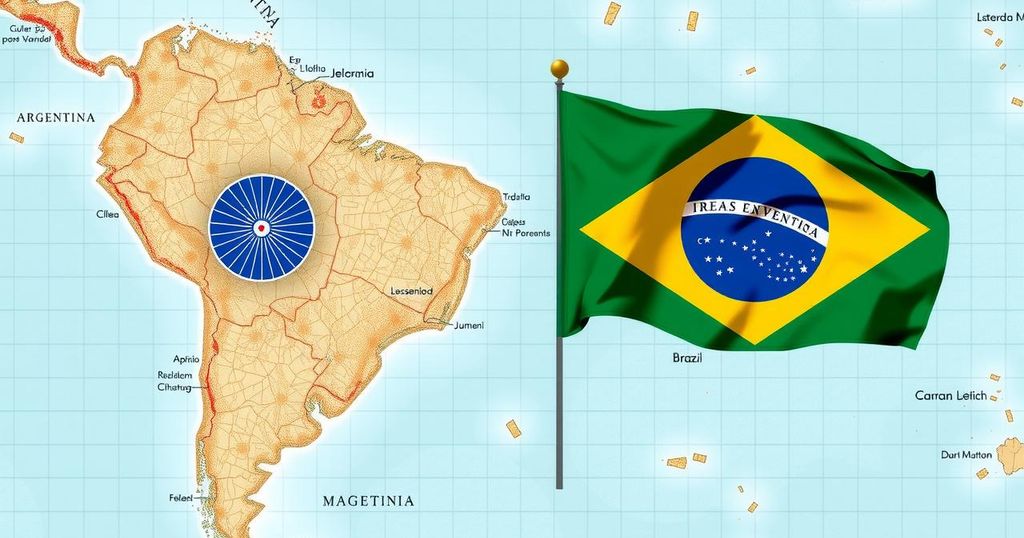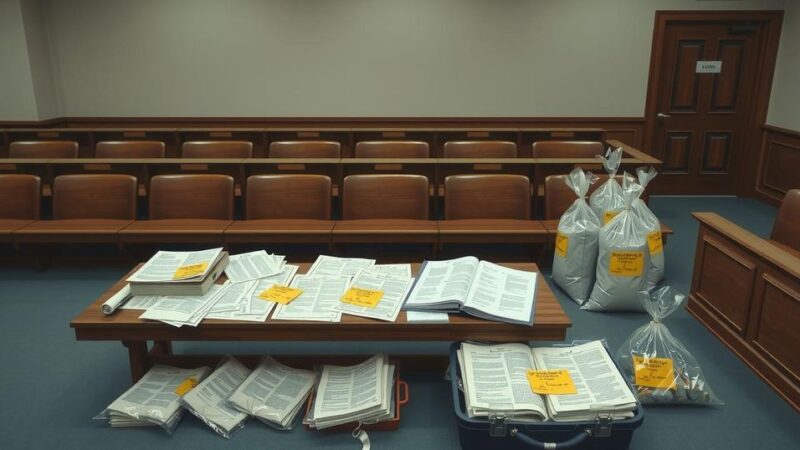In President Javier Milei’s first year, tensions with Brazil under Luiz Inácio Lula da Silva are contrasted by ongoing pragmatic efforts to sustain crucial trade relations. Though bilateral trade has been declining since 2014, cooperation persists in sectors like energy and diplomacy, demonstrating a complex interplay of politics and economics in South American relations.
The dynamics between Brazil and Argentina have experienced notable tensions during President Javier Milei’s inaugural year, particularly highlighted by moments such as the conspicuously strained interactions between Presidents Milei and Luiz Inácio Lula da Silva at the G20 summit in Rio de Janeiro. Concurrently, Milei’s controversial suggestion of possibly severing relations with Brasília symbolizes a contentious phase in bilateral relations; nonetheless, it is critical to acknowledge the underlying pragmatic measures being enacted to sustain trade partnerships.
As the primary trading partner of Argentina, Brazil constitutes a significant economic ally—accounting for approximately 17% of Argentine exports and 24% of imports. However, bilateral trade has seen a downward trend since 2014, prompting President Lula to emphasize trade enhancement as a key objective of his administration. The challenges plaguing this partnership have been compounded by Argentina’s stringent fiscal reforms implemented by Milei’s government.
The energy sector has served as a platform for pragmatic cooperation, evidenced by a Petrobras gas tanker altering its trajectory to alleviate an energy crisis in Argentina earlier this year, following effective diplomatic negotiations. Furthermore, after the expulsion of Milei’s diplomatic team from Caracas by Nicolás Maduro, Brazil assumed responsibility for the management of Argentina’s diplomatic interests there, demonstrating a continued commitment to collaboration.
In addition, President Milei’s actions have raised eyebrows among his allies, particularly regarding his participation in events alongside former Brazilian President Jair Bolsonaro. Moreover, Argentina currently hosts several individuals who were fugitives following the January 8 attacks in Brazil; while the Argentine administration has pledged non-interference, the resolution ultimately rests with President Milei’s decision-making.
These events indicate a complex yet pragmatic interplay characterizing the trajectory of Argentina’s foreign relations under Milei, where cooperation persists despite political friction, highlighting the intricacies of regional diplomacy in South America.
The relationship between Brazil and Argentina, pivotal players in Latin America, has historically oscillated between cooperation and tension, influenced by changes in leadership and economic conditions. President Javier Milei’s ultraliberal policies represent a significant departure from previous administrations, leading to frictions, notably with President Lula of Brazil. Nevertheless, diplomatic channels remain active, reflecting the necessity of economic collaboration in a challenging global landscape.
In summary, the evolving relationship between Brazil and Argentina under President Milei showcases a juxtaposition of friction and pragmatism. While political tensions surfaced during high-profile meetings and events, substantive efforts to maintain trade and diplomatic relations have prevailed. With challenges arising from economic policies and historical tensions, the necessity for cooperation remains evident, shaping the future interactions of these neighboring nations.
Original Source: www1.folha.uol.com.br






